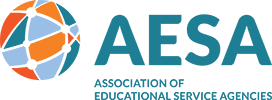K12 Cyber and You: Ready to Go Resources
The following list of resources all come from the Cybersecurity and Infrastructure Security Agency (CISA) in the Department of Homeland Security.
Putting it all together in one spot, here is a list of CISA K-12 Cyber and Physical resources:
- Whether you are a school administrator, teacher, parent, or part of the education community, CISA’s Cybersecurity for K-12 Education serves as the landing page for all CISA K-12 resources.
- The K-12 School Security Guide Product Suite is designed to provide K-12 districts and campuses with resources, tools, and strategies to improve school physical security. The suite outlines action-oriented practices and helps schools and districts learn the steps necessary to assess vulnerabilities, strengthen security, and better protect against a range of targeted violence and other threats.
- In a combined effort to improve and encourage reporting, CISA’s School Safety Task Force and the U.S. Secret Service National Threat Assessment Center partnered to develop the K-12 Bystander Reporting Toolkit. This toolkit provides strategies K-12 institutions can use to implement and enhance safety reporting programs and encourage bystander reporting among students and school community members.
- SchoolSafety.gov is a collaborative, interagency website created by the Federal government to provide schools and districts with actionable recommendations to create safe and supportive environments for students and educators. The site serves as a one-stop access point for information, resources, guidance, and evidence-based practices on a range of school safety topics and threats.
- Just over one year ago, CISA released Protecting Our Future: Partnering to Safeguard K-12 Organizations from Cybersecurity, which we call the K-12 Report, addressing cybersecurity risks facing elementary and secondary schools and providing recommendations that include cybersecurity guidelines designed to help schools face these risks. Since early last year, CISA has engaged on several fronts to address and reduce risks for the K-12 Community.
- Following the release of the K-12 Report, CISA published a complimentary online K-12 Toolkit that is derived from a broader list of tasks, we refer to as Cybersecurity Performance Goals, or CPGs. CPGs are a common set of protections organizations can use to reduce the likelihood and impact of known risks and adversarial techniques.
- Additionally, CISA’s no-cost Vulnerability Scanning Cyber Hygiene (CyHy) Program evaluates external network presence by executing continuous scans of public, static IPv4s for accessible services and vulnerabilities. This service provides weekly vulnerability reports and ad-hoc alerts.
- CISA encourages all schools/school districts to sign up for this no-cost services by emailing vulnerability@cisa.dhs.gov with the subject line Requesting Cyber Hygiene Services to get started.
- Finally, CISA and the Department of Education released our first ever, dual-sealed, co-published, cyber brief K-12 Digital Infrastructure Brief: Defensible and Resilient. This cyber brief provides K-12 school districts across our communities a starting place to understand the importance of securing their digital infrastructure and provides steps schools can take immediately to protect their systems. It also highlights the need for a whole-of-government approach towards increased support to the K-12 education community.
